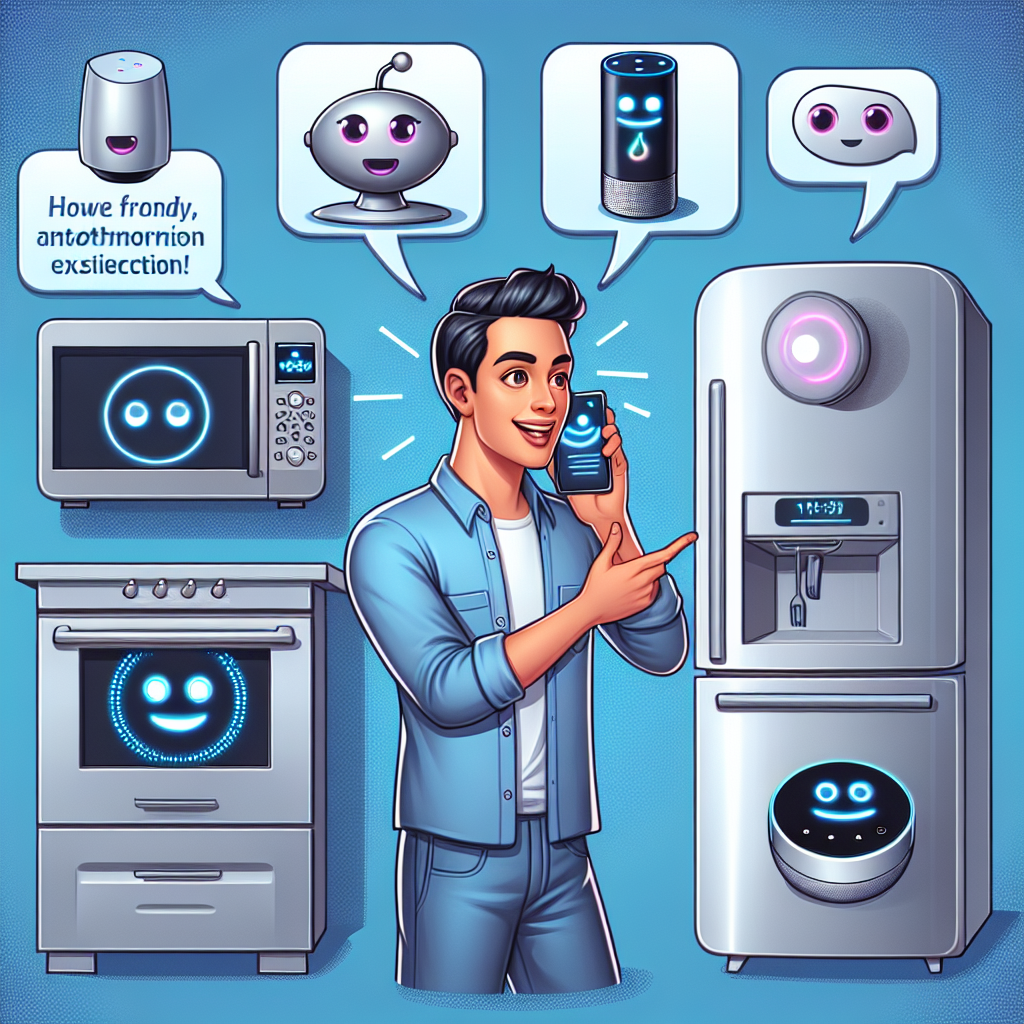In today’s rapidly evolving digital landscape, AI is no longer just an added feature to software—it’s becoming the driving force behind entire platforms. This shift is transforming how we think about software-as-a-service (SaaS), opening doors for businesses of all sizes to leverage sophisticated technology without massive investments in technical expertise. For small businesses and entrepreneurs especially, AI SaaS creation platforms are leveling the playing field, making what was once accessible only to tech giants now available to anyone with an idea and a vision.
The beauty of this transformation lies in how AI applications are becoming increasingly accessible to non-technical users. Where coding knowledge was once a prerequisite for creating customized digital solutions, today’s low-code platforms are eliminating these barriers, democratizing the ability to innovate and automate.
Democratizing Innovation: AI SaaS Creation Platforms for Everyone
AI SaaS creation platforms represent a fundamental shift in how digital tools are built and deployed. These platforms provide intuitive, user-friendly interfaces that allow individuals without technical backgrounds to design, build, and launch sophisticated applications that leverage artificial intelligence.
“The most powerful aspect of low-code AI platforms is that they remove the technical barriers that have traditionally kept small businesses from competing with larger enterprises in terms of digital innovation,” explains a small business owner who recently launched a customer service automation tool using a low-code platform.
These platforms typically feature drag-and-drop interfaces, pre-built templates, and visual workflow builders that make it possible to conceptualize, test, and deploy AI applications without writing a single line of code. For small businesses operating with limited technical resources, this capability is nothing short of revolutionary.
Take, for instance, Brainfab, a no-code platform specifically designed for creating AI products. It’s particularly valuable for startups and small businesses looking to launch minimum viable products (MVPs) based on AI assistants. Similarly, platforms like Fuzen offer AI SaaS website builders that create solid frameworks and backends for SaaS applications, which can be further customized using other no-code tools.
The Power of Low-Code: Building Sophisticated Solutions Without Technical Expertise
The emergence of low-code platforms has democratized access to technology development, allowing businesses to build custom solutions tailored to their specific needs without extensive coding knowledge. These platforms bridge the gap between complex programming requirements and user-friendly interfaces, making it possible for entrepreneurs and small business owners to transform their ideas into functional applications.
For non-technical users, low-code AI platforms like Google AutoML, Akkio, and DataRobot offer intuitive interfaces that simplify the development process. These platforms provide drag-and-drop functionality, pre-built templates, and visual programming tools that make it easy to create sophisticated AI-powered applications without writing code.
A recent survey found that businesses using low-code platforms were able to develop applications up to 10 times faster than with traditional coding methods. This acceleration in development timelines means that small businesses can now respond more quickly to market demands, implement new features based on customer feedback, and iterate on their offerings without the traditional delays associated with software development.
“Before discovering low-code platforms, we had to rely completely on outside developers whenever we wanted to implement new features,” shares the founder of a boutique marketing agency. “Now, our team can build and modify our own tools, which has not only saved us thousands in development costs but also allowed us to be much more responsive to our clients’ needs.”
Workflow Automation: Freeing Time for Strategic Thinking
One of the most significant advantages of integrating AI into SaaS platforms is the ability to automate repetitive, time-consuming tasks. Workflow automation allows small businesses to streamline operations, reduce manual effort, and minimize the potential for human error in routine processes.
AI-powered workflow automation can transform various aspects of a business, from customer onboarding and support to internal processes like data entry, scheduling, and reporting. By delegating these tasks to intelligent systems, entrepreneurs and their teams can focus on high-value activities that require human creativity, emotional intelligence, and strategic thinking.
For instance, a small accounting firm might use an AI SaaS platform to automate client intake processes, document categorization, and preliminary data analysis. This automation doesn’t replace the accountant’s expertise but rather enhances it by ensuring that when they review a client’s finances, they’re starting with organized, pre-processed information rather than raw data that requires hours of preparation.
The time savings achieved through workflow automation can be substantial. Research indicates that knowledge workers spend approximately 28% of their workweek managing email and nearly 20% searching for internal information or tracking down colleagues for assistance. By implementing intelligent automation for these tasks, small businesses can reclaim a significant portion of their productive hours.
Intelligent Collaboration: Enhancing Team Productivity
Beyond workflow automation, AI SaaS platforms excel in facilitating more effective collaboration among team members. Intelligent collaboration tools can analyze communication patterns, suggest optimal meeting times, automatically generate meeting notes, and even identify potential bottlenecks in project workflows.
These capabilities are particularly valuable for small teams that need to maximize their efficiency and ensure that no important details fall through the cracks. AI-powered collaboration tools can serve as virtual team members that handle the administrative aspects of teamwork, allowing human team members to focus on creative problem-solving and relationship-building.
“Our team of five was struggling to keep up with project management across multiple clients,” explains the owner of a small web development agency. “After implementing an AI-powered collaboration tool, we found that we could take on about 30% more projects without feeling overwhelmed. The system helps us prioritize tasks, identifies potential schedule conflicts before they become problems, and even suggests which team member might be best suited for specific tasks based on their workload and expertise.”
Customizable AI Digital Workers: Your Virtual Team Members
Perhaps the most exciting development in the AI SaaS landscape is the emergence of customizable AI digital workers. These are not simple chatbots or rigid automation scripts but sophisticated virtual agents that can be trained to perform complex tasks according to your specific business requirements.
Customizable AI digital workers can handle a wide range of responsibilities, from customer service and lead qualification to data analysis and content creation. They can be designed to reflect your brand’s voice and values, ensuring consistency in all interactions while reducing the burden on your human team members.
Platforms like Lindy are pioneering this space by allowing users to build teams of AI employees that work together to perform virtually any task. Similarly, UneeQ offers digital humans for sales training, helping representatives build confidence and refine their skills through realistic role-play scenarios with AI-powered digital humans.
What makes these digital workers particularly valuable for small businesses is their scalability. Unlike human employees, AI agents can handle increased workloads without becoming overwhelmed or requiring additional compensation. They can work 24/7, ensuring that critical business functions continue even outside of regular business hours, and they can be quickly reconfigured to adapt to changing business needs.
- 24/7 availability without overtime costs
- Scalable capacity during peak periods
- Consistent performance without fatigue
- Quick reconfiguration for changing business needs
Personal Use AI Products: Simplifying Daily Management
The benefits of AI SaaS platforms extend beyond business applications to personal productivity and life management. Personal use AI products can help individuals streamline their daily routines, manage their finances, organize their schedules, and even monitor their health and wellness goals.
These tools are designed with user-friendliness in mind, making sophisticated AI capabilities accessible to anyone regardless of their technical background. From smart calendars that automatically schedule and prioritize tasks to financial management apps that categorize expenses and suggest saving strategies, personal use AI products are changing how individuals manage their daily lives.
“I used to spend hours each week just trying to keep my schedule organized and my budget on track,” shares a freelance graphic designer. “Now, I use an AI personal assistant that handles most of that administrative work for me. It schedules my client meetings during my preferred working hours, reminds me of upcoming deadlines, and even helps me track my business expenses for tax purposes. It’s like having a personal assistant that works for me 24/7.”
The Rise of AI Marketplaces: Sharing and Selling AI Products
As AI SaaS creation platforms become more popular, we’re seeing the emergence of marketplaces where users can share and sell the AI products they create. These marketplaces foster a collaborative ecosystem where innovations can spread rapidly, allowing businesses to benefit from each other’s solutions rather than reinventing the wheel.
For entrepreneurs and small businesses, these marketplaces represent both a resource for finding ready-made solutions to common challenges and a potential revenue stream for monetizing their own innovations. A small business might develop a custom AI workflow for managing customer inquiries in their specific industry and then offer that solution to other businesses facing similar challenges.
This ecosystem approach accelerates innovation by allowing solutions to evolve through collective input and adaptation. It also provides small businesses with access to sophisticated AI capabilities that might otherwise be beyond their reach, enabling them to implement advanced features without starting from scratch.
The Future of AI Agent Technology: Becoming More Intuitive
Looking ahead, the future of AI agent technology promises even greater personalization and improved decision-making capabilities. As machine learning algorithms become more sophisticated and training data more diverse, AI agents will become increasingly intuitive, better able to understand context, and more capable of making nuanced judgments that take into account a wide range of factors.
We can expect AI digital workers to evolve from tools that execute specific tasks to true collaborators that can anticipate needs, suggest innovative approaches, and adapt their behavior based on changing circumstances. They’ll become more conversational, more emotionally intelligent, and better able to work alongside human team members in complex, dynamic environments.
“The next generation of AI agents will understand not just what tasks need to be done but why they’re important and how they fit into the broader context of your business goals,” predicts a technology analyst specializing in AI development. “They’ll be able to prioritize work based on strategic objectives rather than just scheduling constraints, and they’ll communicate with users in ways that feel natural and supportive rather than mechanical.”
Embracing the AI SaaS Revolution
The evolution of AI in SaaS platforms represents a fundamental shift in how businesses operate and compete. For small businesses and entrepreneurs, these technologies offer unprecedented opportunities to automate routine tasks, enhance collaboration, and deliver personalized experiences to customers without requiring massive investments in technical infrastructure or specialized staff.
At Zygote.AI, we believe in the transformative power of making AI creation accessible to everyone, regardless of their technical background. Our platform empowers individuals and teams to build intelligent and efficient AI applications without coding skills, turning innovative ideas into functional reality through our user-friendly low-code environment.
By embracing customizable AI digital workers and intelligent automation, small businesses can achieve cost reductions while gaining deeper insights into their operations and customers. They can reallocate human resources from repetitive tasks to creative problem-solving and relationship-building, fundamentally changing how they deliver value.
The future belongs to those who can effectively leverage these technologies to enhance their unique capabilities rather than replace them. As AI SaaS creation platforms continue to evolve, they will unlock endless possibilities for innovation, efficiency, and growth—enabling small businesses to compete not just on resources but on creativity, agility, and vision.
In this new landscape, the question isn’t whether small businesses should adopt AI technologies but how quickly they can integrate them into their operations. Those who embrace these tools today will be positioned to lead tomorrow, turning the dream of truly intelligent, efficient operations into a practical reality.









